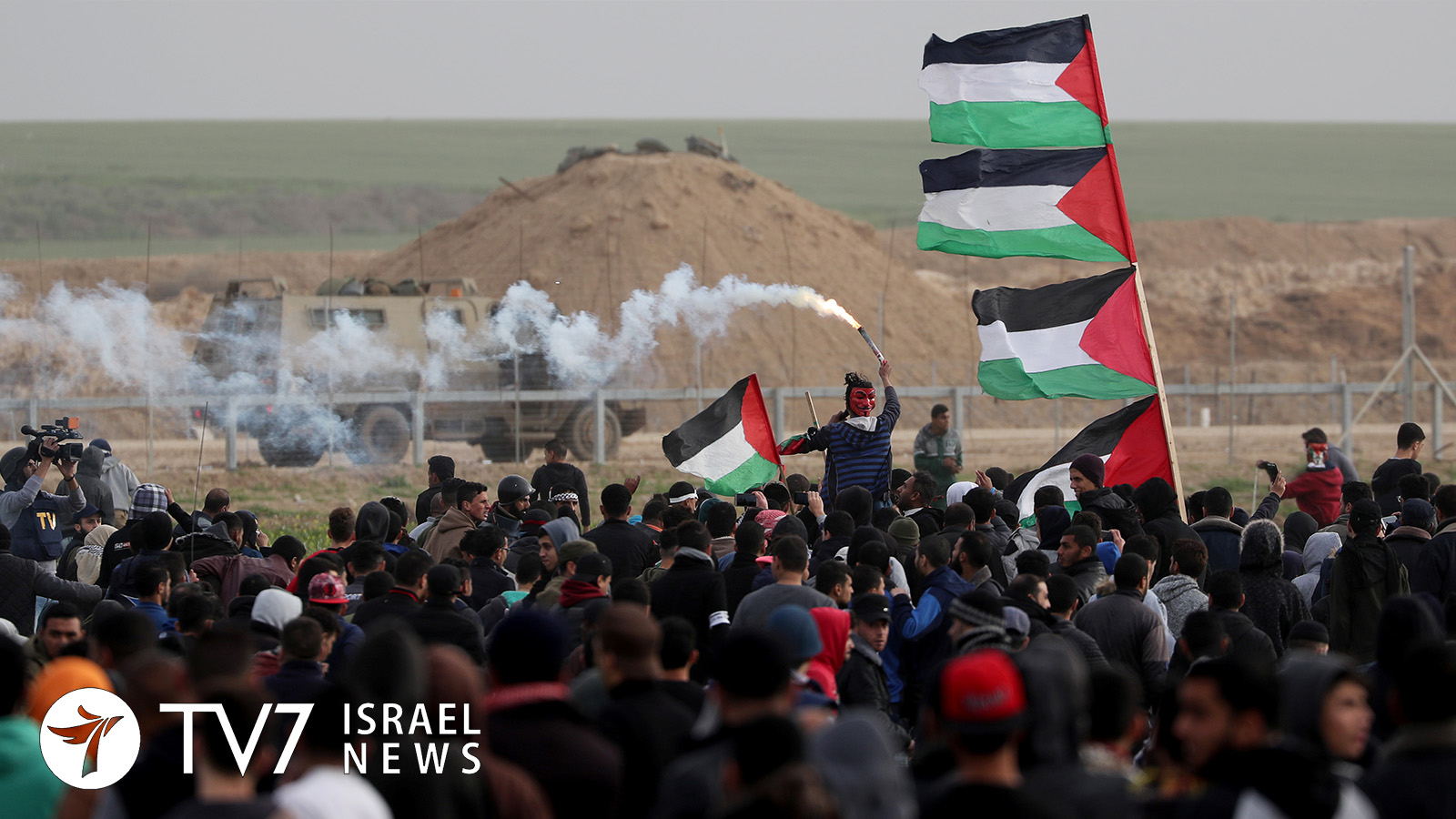Gaza leaders have announced that protests along the separation border with Israel will no longer be called on a weekly basis, but instead convened on dates with significance to the Palestinian people.
For nearly 20 months, Gazans have rioted almost every week after Friday Islamic prayers during what they have dubbed the “Great March of Return” to lands they claim in Israeli territory. The incidents have had deadly consequences, after violent mobs attempted to sabotage the fortified fence to infiltrate Israel, while hurling firebombs and rocks at Israeli troops safeguarding the border who respond with crowd dispersal methods including live fire.
The protesters have demanded an end to a security blockade imposed on Gaza by Israel and Egypt in 2007, after Hamas seized power of the enclave in a bloody internecine civil war from its rival faction Fatah, which controls the Palestinian Authority under the leadership of Mahmoud Abbas. Demonstrators also claim the right to return to land from which their families fled or were forced to flee during Israel’s 1948 founding. Israel rejects any such return, saying it would threaten state security including the elimination of its Jewish majority.
Israel unilaterally withdrew Jewish residents and militarily from Gaza in 2005, after having captured the territory from Egypt in the 1967 Six Day War. It adamantly maintains the current blockade on the lawless territory is mandated to prevent the flow of arms from Iran and other malign regional actors from reaching Hamas, which fought three wars with Israel and fired thousands of rockets at its civilian population in the past decade.
Since the onset of the Friday protests in March 2018, one Israeli soldier was shot dead by a Palestinian sniper, and Gaza medical sources say 214 Palestinians have been killed. In recent months, the protests have tapered off or outright cancelled. The last “weekly” protest has been called to take place tomorrow (December 27).
The Higher National Committee for the Great Return March organization is a collection of Gaza-based factions and civil society groups that coordinated the protests, which Israel alleges operates under the direction of the Hamas rulers of Gaza.
Speaking to Reuters, one of the group’s leaders said the decision to hold fewer protests is not a sign of conciliation. Rather, “We decided to expand these protests, so they will be part of the Palestinian national struggle and will continue our resistance against [Israeli] occupation,” said Wajjeh Abu Zarifa, insisting that the “Palestinians maintain the message of their right to return.”
Abu Zarifa vowed “we will never stop these rallies,” and said only their “form” will be changing to take place on monthly, “national occasions.”
Some analysts believe that less-frequent riots in the Gaza Strip may signify a lasting détente between Israel and Gaza’s Islamist rulers Hamas along the volatile frontier, in efforts they attribute to diplomatic mediation and financial support by Egypt, Qatar and the United Nations to fend off another, wider escalation between Israel and Hamas.
